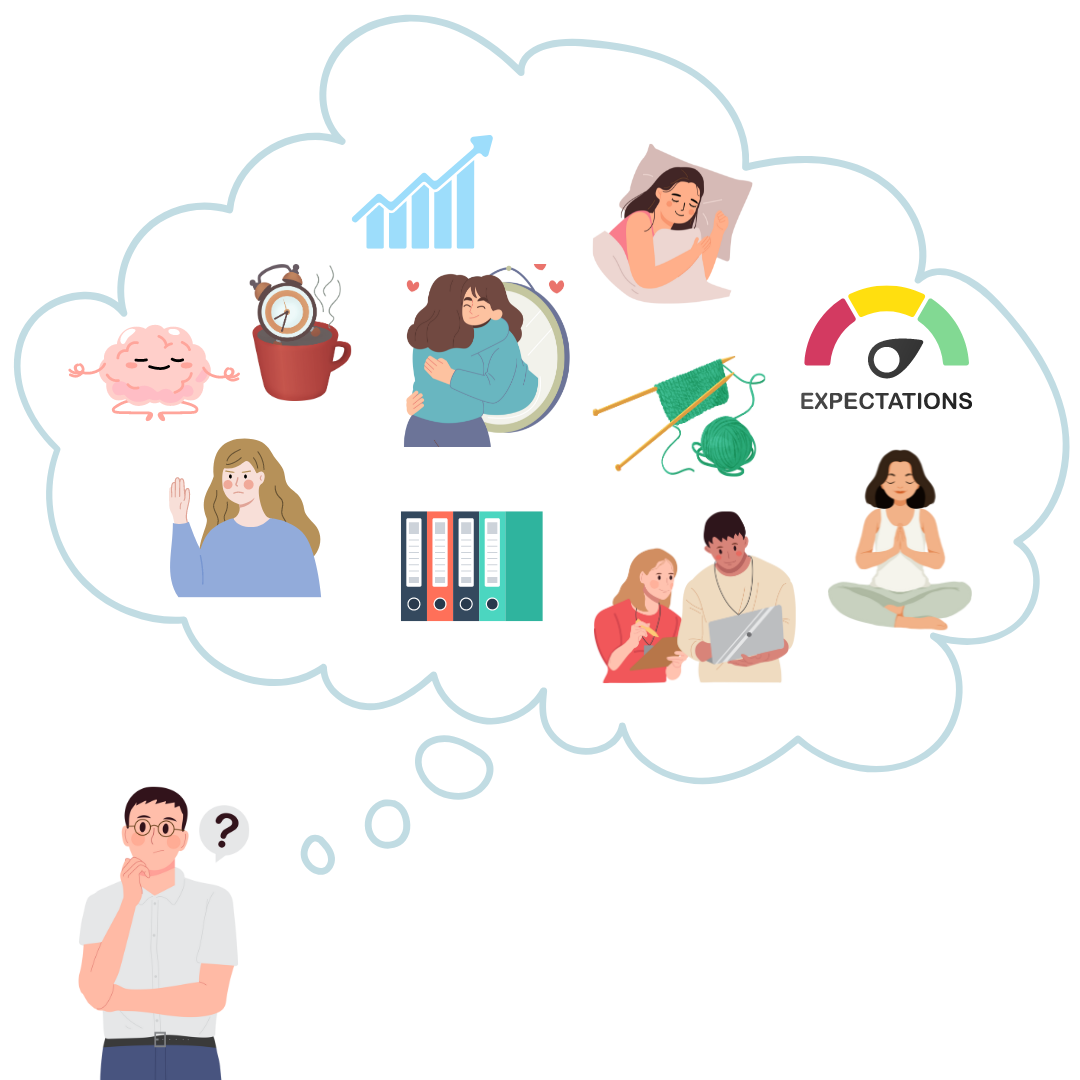Teacher self-care/self-regulation

Here you will find answers to the following questions:
- What is self-care?
- Why is self-care important?
- Self-care tips for parents
What is self-care?
Why is self-care important?
Although it can oftentimes be overlooked, self-care is of great importance to improve one’s mood and prevent burnout. It is essential to listen to your body and develop an understanding of the fact that taking care yourself is not selfish. Therefore, prioritizing self-care is a must, not just a luxury.
Especially when you have a lot on your mind, it might seem easy to sacrifice time for yourself. However, when you are at your best, it becomes easier to thrive as a teacher and help those around you, including your students. Remind yourself that “You can’t pour from an empty cup.”
Self-care tips for teachers
Self-care activities can range from going for a walk, reading a good book, to having a conversation with a friend. There is not one “correct” or “better” way to implement self-care, instead think about any simply activity that might provide you with energy and decide on what works best for you.
Self-care does not just happen, it needs to be actively planned. You can add your plan to your calendar, hold yourself accountable by speaking to others about these activities and keep your eyes open for opportunities to incorporate self-care in your daily life. You might also be able to integrate self-care activities into your work day at school with the help of your colleagues or even school management.

Try to view rest as a necessity to maintain your well-being. Resting can include simple steps just as…
- turning of the lights in your classroom for five minutes and taking a few deep breaths after your students have already left
- limiting the time you spend on your phone or on social media
- spending less time checking your devices or e-mails
- going out for a walk, enjoying the outdoors, and getting some fresh air
- listening to your favorite music
- enjoying a cup of coffee or tea


Set Boundaries: Establish clear boundaries between work and personal life. Designate specific times for work-related tasks and ensure you have time for relaxation and personal activities.
Practice Mindfulness: Incorporate mindfulness techniques into your daily routine to manage stress and stay present. This could include short meditation sessions, deep breathing exercises, or mindful walking during breaks.
Mindful Habits: Try reminding yourself daily to let go of the things you cannot control. At the end of each day, you could make a list of all the positive things that happened that day or try writing down at least three things you are grateful for.
Stay Organized: Keep your workload manageable by staying organized. Use tools like planners or digital calendars to schedule tasks, deadlines, and activities. Prioritize tasks based on importance and urgency to avoid feeling overwhelmed. It’s important to prioritize new (self-care) habits at first.
Take Regular Breaks: Incorporate short breaks throughout your day to recharge and prevent burnout. Step away from your desk, stretch, or take a brief walk to clear your mind and improve focus (see tips for small resting breaks above).
Stay Connected: Cultivate a supportive network of colleagues, friends, and mentors. Connecting with others who understand the challenges of teaching can provide valuable emotional support.
Engage in Hobbies: Make time for activities outside of teaching that bring you joy and fulfilment. You can start by taking up an old hobby or starting a new one. Try implementing an activity you enjoy doing or find meaningful every day.
Seek Professional Development: Invest in your professional growth by attending workshops, conferences, or online courses. Continuously learning and developing new skills can boost your confidence and job satisfaction.
Practice Self-Compassion: Be kind to yourself and acknowledge that it’s okay to make mistakes or feel overwhelmed at times. Treat yourself with the same compassion and understanding you would offer to your students.
Get Adequate Rest: Prioritize sleep and ensure you’re getting enough rest each night (7 hours a night is a good benchmark for most people)
Set Realistic Expectations: Be realistic about what you can accomplish within a given timeframe. Avoid overcommitting yourself and learn to say no when necessary. Setting realistic expectations can help reduce stress and prevent feelings of inadequacy.
Always a good idea: sleep well, eat healthy, stay active (just 30 minutes of movement a day can have a huge, positive impact on your wellbeing), try avoiding the overuse of substances like caffeine, nicotine, or alcohol; however, self-care is not about living life without flaws – it’s about taking care of yourself and keeping a healthy balance.
If it all becomes too overwhelming and you cannot overcome stress or burnout on your own you might also want to reach out for additional help. In this case, one of the best things you can do for yourself is to seek counseling or another form of professional help.
Remember: Self-care is not selfish! It’s essential for your well-being and effectiveness as a teacher. Prioritize your own n eeds so you can continue to make a positive impact on your students and colleagues.